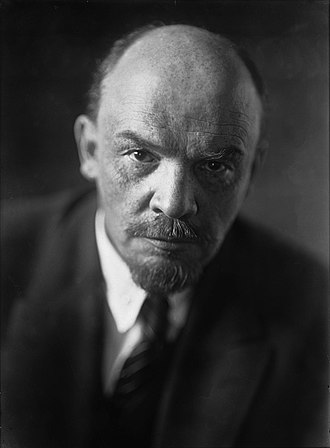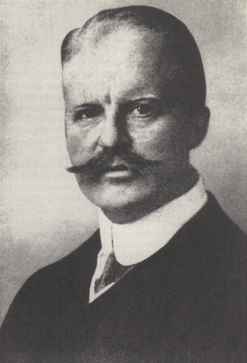User:Atcovi/History/World War I
Causes of WWI
[edit | edit source]- M = Militarism
- A = Alliances divided Europe
- N = Nationalistic feelings
- I = Imperialism
- A = Alliances caused diplomatic failures
- C = Competition over colonies
- S = Serbian assassination
- While the assassination of the Archduke Franz Ferdinand was tragic, it was not enough to start a war that would involve the majority of the European nations and eventually the US. There were background issues that were simmering.
- Militarism is the 20th century belief that all of a country's problems can be solved by the use of force. This led to competition between European nations to see who had the best army and navy.
Alliances
[edit | edit source]Dual Alliance and the Triple Alliance
[edit | edit source]The alliance system: Prior to the outbreak of WWI, there were two major alliance systems. The first was the Dual Alliance... formed between Germany and Austria-Hungary in 1879. This alliance was formed because Germany feared revenge from France (defeated by Prussia in 1871; wants to regain Alsace-Lorraine). This alliance between Austria-Hungary, Germany and, soon, Italy (1882) formed the Triple Alliance.
Triple Entente
[edit | edit source]Due to the balance of power had been upset with German unification in 1871, an alliance was created between Britain, France, and Russia in 1907. This was known as the Triple Entente. Germany was surrounded.
Nationalism
[edit | edit source]
- What does nationalism mean for a unified country?
- Separation
- What does nationalism mean for national minorities and ethnic groups?
- Self-Determination
- Which European region was nicknamed "the powder keg of Europe"? Why?
- Balkan Peninsula -- Nationalist uprising
- Nationalism frequently leads to territorial disputes. For example, France wants the return of Alsace-Lorraine lost to Germany in the Franco-Prussian War.
Imperialism is basically the acquisition of colonies, but the reasons have changed since the Age of Exploration and Colonization. In England and Europe, the IR has created a demand for raw materials to produce goods and then markers in which to sell them.
The Spark
[edit | edit source]

On June 28, 1914, the Archduke Franz Ferdinand and his wife were assassinated while visiting the capital of Bosnia, Saravejo. The assassin was Gavrilo Princip, a member of a nationalist group named the "Black Hand". In retaliation for the assassination of the heir to the throne, Austria-Hungary sends Serbia an ultimatum on July 23rd.
Serbia declines the ultimatum, leading to Austria declaring war on the Serbs on July 28. In support of her ally Serbia, Russia is the first to mobilize her troops on the Austrian border and declares war on A-H. Germany, in support of the A-H, declares war on France and Serbia. Britain is the last to enter the war. Due to the several alliances, the whole of Europe is eventually brought into this war.
WWI is fought on two fronts--a front is an area of massive fighting where several opponents meet--, the Western Front and the Eastern Front. As a result of the Industrial Revolution and the Arms race, there are plenty of new weapons:
- Tanks
- Planes
- Machine guns
- Submarines/U-boats
- Chemical warfare
- Zeppelns
- Flamethrowers
- Dirigibles
- Airplanes
- Propoganda
Western Front
[edit | edit source]
The Western Front is located in the present-day countries of Luxembourg, France, Belgium, and Germany. Germany, being surrounded, prepared a carefully calculated plan known as the Schlieffen Plan. The Schlieffen Plan stated:
- Germany would first move all of her troops to the west and defeat France
- Germany would then move them to the east to defeat Russia
To invade France, German troops had to march through Belgium, which caused GB to enter the war.
The Schlieffen Plan ended up not working as German troops were slowed down at the Battle of the Marne. A war which was supposed to be over in three months would now drag on for 4 years.
WWI had now become a "war of stalemate", which means no countries were making any land gains.
A major characteristic of warfare during WWI was trench warfare. Soldiers on opposing trenches try to outlast the other soldiers/wear down other side with constant attacks. No one survives in trench warfare. To force the other side to die/retreat, poison gas was used. Poison gas would cause blindness, choking, vomiting and blistering. Poison gas was used in the 2nd battle of Ypres. At the Battle of Verdun, in February 1916, each side has approximately 500k casualties. At the Battle of the Somme in 1916, over 1 million would die in 5 months of fighting.
Due to the constant fighting, refugees, or people who leave their city or country to find safety in another, fled to other countries like America for safety.
Eastern Front
[edit | edit source]
The Eastern Front is located in present-day countries of Germany, Poland, and Eastern Russia. Fighting on the Eastern Front was more mobile and had fewer trenches, unlike the Western Front. The major combatants on the Eastern Front were Germany, Austria and Russia... though Russia eventually withdraws from the war in 1917 due to supply shortages, terrible loss of soldiers and the Russian Revolution. Russia withdrawing from the war was a great loss to Great Britain and France, as they wanted Russia to remain in the war so that they keep the German soldiers divided/surround Germany with attacks. The Russian Revolution is caused by Vladimir Lenin, who is sent to Russia in hopes that he topples the government of Nicholas II. The hopes of the Germans were successful as Lenin starts a communist revolution in Russia and pulls Russia out through the Treaty of Brest-Litovsk.
Meanwhile, the British fight the 3-month Battle of Gallipoli to acquire the Dardanelles (which is a strait that connects the Black Sea and the Mediterranean Sea) in order to connect themselves to the Mediterranean Sea.
US enters
[edit | edit source]
Since WWI began in 1914, the US sold war technology to the highest bidder--technically participating in the war, but nevertheless, the US maintained neutrality, the policy of remaining neutral/apart from the affairs and interest of other groups. This changes, however.
Up to 1915, the Germans were desperate to stop supplies from reaching the Allies in Europe. They began to campaign unrestricted submarine warfare, a German campaign in which any ship thought to be carrying war supplies was sunk. Even though they had been warned that there was a war going on and with the knowledge that ships were being sunk, the British passenger, RMS Lusitania, set sail from New York to her destination: Liverpool, England. The Lusitania eventually sinks near Liverpool on May 7, 1915.
In February 1917, the British managed to intercept, decode and send the US government a telegram sent by German Foreign Secretary Arthur Zimmermann to the German minister in Mexico. This telegram instructed the minister to ask Mexico for an alliance with Germany against the US, if the US entered the war. In return for Mexico's help, the Germans promised Mexico the return of the lands of Texas, Arizona and New Mexico.
From the Zimmerman note to an additional 4 more American ships being sunk, Woodrow Wilson and Congress declared war on Germany on April 6, 1917. Woodrow Wilson wanted to make the world "safe for democracy".
On the entering of the US into the war, the German's last major offensive took place in March 1918. Once again, the German army was stopped at the Marne on their way to Paris. With the assistance of the US, Germany signed an armistice on the 11th hour of the 11th day of the 11th month of 1918.
End of the War
[edit | edit source]All of the countries that defeated the Central Powers were present at the Paris Peace Conference, but the major decisions were made by the big four and their representatives:
- Woodrow Wilson - U.S.
- Georges Clemenceau - France
- David Lloyd George - Britain
- Vittorio Orlando - Italy
Each country came with their own demands:
- Britain wanted the total destruction of the German navy.
- France wanted the return of Alsace-Lorraine.
- Italy wanted the land promised to her in the secret treaty which caused her to switch sides.
President Wilson wanted peace to be based on a speech he made before Congress that included the 14 points. With this plan he hoped to eliminate future wars:
- no secret treaties
- freedom of the seas
- free trade: no tariffs or other barriers that would interfere with trade
- the reduction of arms
- self-determination: The right of colonies and other groups to determine their government
Also with the ending of Germany's terrible reign across Europe, four other empires were ended by WWI. They were Russia, Austria-Hungaria and the Ottoman Empire.
It took 4 treaties to end WWI due to the several conflicts that were taking place.
Treaty of Versailles
[edit | edit source]The Treaty of Versailles was signed at Paris, France (Versaille Palace) on May 7, 1919.
- Major terms
- Germany loses all colonies.
- Alsac-Lorraine returned to France.
- Completely disarmed.
- Forced to accept total blame for WWI: the war-guilt clause
- Forced to pay reparations of 56 billion dollars.
- The Rhineland becomes a "Buffer Zone" between France and Germany.
- Poland had disappeared from the map of Europe in 1795 and finally reappears in 1919. To give Poland an outlet to the sea, the Polish carridor is created through Germany.
- The creation of a peacekeeping organization: League of Nations ("world court").
Empires broke down:
- Russian Empire collapses and withdraws from the war in 1917. She lost land, the present day countries of Poland, Finland, Latvia, Lithuania and Estonia used to be Russia's land. Russia is also excluded from the peace negotiations. Russia also loses more than 2 million and loses more land than France.
- Ottoman Empire ended in Turkey, Syria, Transjordan, Iraq, and Palestine. Countries went through a "mandate system": to be ruled by either England or France.
- Austro-Hungarian Empire ended in Austria, Hungary, Czechoslovakia, and Yugoslavia.
- US denies the Treaty of Versailles.